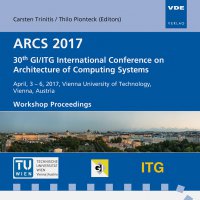A Concept for Self-adapting and Self-learning Traffic Offloading in Cellular Networks
Konferenz: ARCS 2017 - 30th International Conference on Architecture of Computing Systems
03.04.2017 - 06.04.2017 in Vienna, Austria
Tagungsband: ARCS 2017
Seiten: 8Sprache: EnglischTyp: PDF
Persönliche VDE-Mitglieder erhalten auf diesen Artikel 10% Rabatt
Autoren:
Tomforde, Sven; Gruhl, Christian (Intelligent Embedded Systems (IES), University of Kassel, Germany)
Haehner, Joerg (Organic Computing, University of Augsburg, Germany)
Inhalt:
Mobile data communication experienced a dramatic growth within the last decade. As a result, existing infrastructure technology reaches its limitations in terms of capacity and bandwidth. In the context of current initiatives such as 5G, one possible approach to alleviate the drawbacks of this ongoing trend and consequently to reduce cost for more sophisticated infrastructure solutions is increasingly discussed: traffic offloading. The term comprises initiatives to combine the traditional cell-based communication approach with device-to-device communication in ad-hoc mode. In this paper, we extend previous work in this field by means of an adaptation mechanism that aims at optimising the behaviour of the user devices. In particular, we adapt the beacons sent among the distributed user devices in ad-hoc mode to check their neighbourhood by taking the current status of the device into account. Afterwards, we discuss how such a traffic offloading system can benefit from Organic Computing technology and develop a research agenda towards a self-adapting and self-learning offloading system that is characterised by robustness against malicious devices and negative environmental influences.


